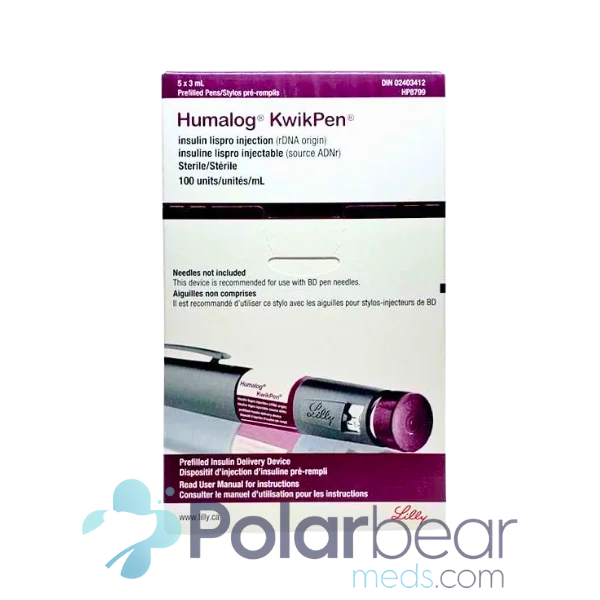
Metformin Hypoglycemia and Lactic Acidosis Risks
HOME | DIABETES EDUCATION | METFORMIN HYPOGLYCEMIA AND LACTIC ACIDOSIS RISKS
In terms of diabetes care, the scrutiny of metformin’s propensity for hypoglycemia and lactic acidosis persists. Despite initial apprehensions regarding these hazards, recent insights have shed light on the nuanced safety profile of this commonly prescribed drug.
Understanding the intricate interplay between metformin, glucose levels, and metabolic pathways is crucial for optimizing patient outcomes. Delving deeper into the dual risks and benefits of metformin holds the key to navigating the complexities of diabetes management and unveiling the ever-evolving landscape of modern therapeutics.
Key Takeaways
- Metformin poses hypoglycemia risk, monitor glucose closely.
- Lactic acidosis risk higher in renal impairment, seek immediate help.
- Symptoms of lactic acidosis: weakness, respiratory distress.
- Assess risk factors before prescribing metformin for safety.
Historical Concerns of Metformin Hypoglycemia
Metformin’s historical association with hypoglycemia, particularly concerning lactic acidosis, has influenced early perceptions of the drug.
Withdrawal of phenformin, a similar biguanide, in 1976 due to lactic acidosis in 306 cases, led to initial fears.
The United States faced approval delays for metformin due to past concerns about biguanides and lactic acidosis. Metformin was approved with a boxed warning following advocacy group concerns.
Despite these worries, large studies found no direct link between metformin and lactic acidosis. When used and monitored correctly, the benefits of metformin in diabetes management far outweigh the minimal risk of lactic acidosis.
Lactic Acidosis Risk Factors; Type 2 Diabetes
Metformin-associated lactic acidosis (MALA) risk factors in individuals with type 2 diabetes include:
Insulin Sensitivity
Glucose Control
Individual Metabolic Status
Monitoring these factors is crucial to mitigate the risk of lactic acidosis while maximizing the benefits of metformin treatment.
Metformin Safety Profile
Metformin’s safety profile is firmly established after more than 40 years of extensive use in effectively managing type 2 diabetes. Studies have not uncovered a direct correlation between metformin use and lactic acidosis, with FDA-submitted data indicating no instances of metformin-induced lactic acidosis.
When used appropriately, metformin is generally deemed safe for individuals with type 2 diabetes, including children, and can be combined with other antidiabetic medications. The risk of metformin-associated lactic acidosis is minimal when the medication is prescribed and monitored correctly.
Although metformin may cause some side effects, the overall benefits in diabetes management far surpass these risks. Monitoring glucose levels, adjusting the metformin dose as necessary, and preventing hypoglycemia through proper insulin timing are crucial in ensuring the safe use of metformin for diabetes management.
Benefits of Taking Metformin
After confirming its safety record in handling type 2 diabetes for many years, the focus shifts to the notable advantages linked to taking metformin. When considering metformin therapy, it is crucial to recognize the following key benefits:
Enhanced Longevity: Metformin stands out as a pivotal treatment for type 2 diabetes, showcasing a decrease in overall mortality rates compared to other antihyperglycemic therapies. This substantial impact on lifespan underscores its significance in diabetes care.
Weight Regulation: Research indicates that metformin contributes to weight reduction or maintenance in individuals with diabetes. This influence not only helps in enhancing overall well-being but also plays a vital role in improving the quality of life for patients grappling with weight-related issues.
Superior Effectiveness: Metformin therapy has displayed superior effectiveness in comparison to insulin, sulfonylureas, or dietary measures alone for managing type 2 diabetes. Its positive effects on diabetes-related outcomes and mortality rates further emphasize its value in optimizing patient results.
Monitoring Metformin Appropriately
Monitoring metformin therapy requires regular assessment of renal function, specifically serum creatinine levels, to optimize drug clearance and prevent lactic acidosis. Monitoring metformin levels helps identify patients at risk of lactic acidosis and informs dose adjustments.
Symptoms like fatigue, weakness, abdominal discomfort, and respiratory distress should be closely monitored for early detection of lactic acidosis. Periodic electrolyte monitoring, including bicarbonate levels, assists in evaluating metabolic acidosis linked to metformin use.
Educating patients on blood glucose monitoring and recognizing hypoglycemia or lactic acidosis symptoms is crucial for safe metformin use. Diligent monitoring and patient education are key to managing risks associated with metformin therapy.
Serious Side Effects of Metformin and Lactic Acidosis
Monitoring metformin necessitates regular renal function assessments and vigilant symptom observation to mitigate lactic acidosis risk. Hypoglycemia can arise due to metformin overdose or concomitant use of blood sugar-lowering medications, warranting hypoglycemia awareness and immediate intervention.
Lactic acidosis, albeit infrequent, poses a grave complication linked to metformin, especially with high doses, renal dysfunction, and hypoxia-prone conditions. Severe hypoglycemia and lactic acidosis from metformin toxicity might mandate hemodialysis for drug clearance, acid-base balance restoration, and enhanced patient outcomes.
Proactive risk awareness and diligent monitoring are imperative for safe metformin utilization in diabetes management.
Managing Diabetes With Metformin
Metformin is effective for managing diabetes by lowering blood sugar levels and enhancing insulin sensitivity. It has a lower risk of hypoglycemia compared to other antidiabetic drugs. Caution is necessary, particularly in patients with renal impairment, to prevent rare metformin-induced hypoglycemia.
Although lifestyle intervention had a significantly greater effect on progression to diabetes than metformin in the overall study, the DPP identified subgroups with comparable efficacy between the two interventions. Namely, metformin was comparable to intensive lifestyle intervention in obese individuals with a BMI ≥35 kg/m2, demonstrating a 53% reduction in progression to diabetes (compared to 51% for lifestyle); in younger individuals aged 25–44 years, with a 44% reduction compared to 48% with lifestyle (3); and in women with a history of gestational diabetes, showing a reduction in incidence of diabetes of ∼50% with either lifestyle or metformin therapy (5), a benefit that persisted at the 10-year follow-up (6). Metformin also demonstrated a greater effect compared to placebo in individuals with an elevated FPG of 110–125 mg/dL (48% reduction) compared to those with an FPG of 95–109 mg/dL (15% reduction) (3), likely reflecting its mechanism of suppression of fasting hepatic glucose production.
https://www.ncbi.nlm.nih.gov/pmc/articles/PMC6243218/#:
Symptoms of hypoglycemia include sweating, dizziness, and confusion. Proper dosing and monitoring are essential to avoid recurrent hypoglycemia. Metformin overdose can result in lactic acidosis, but the risk is minimal with appropriate use.
Its benefits in reducing mortality and cardiovascular risks make it a common treatment for type 2 diabetes. Understanding metformin’s adverse effects and recognizing risk factors like impaired kidney function can help optimize diabetes management while minimizing complications.
Metformin Prescription Guidelines
Considerations for metformin prescription guidelines revolve around renal function and comorbidities to mitigate lactic acidosis risk. Key points to ensure safe metformin use include:
Renal Impairment: Chronic kidney disease poses a significant contraindication due to heightened lactic acidosis risk with compromised kidney function.
Liver Disease: Patients with hepatic conditions should steer clear of metformin to avert lactic acidosis, given the liver’s role in metformin metabolism.
Age Over 65: Advanced age serves as a contraindication for metformin use due to potential elevated lactic acidosis risk in this demographic.
Metformin-Associated Complications
Patients with compromised renal function are at higher risk of metformin-induced lactic acidosis, necessitating careful medication management. Metformin overdose or fluctuating levels can lead to severe complications such as hypoglycemia and lactic acidosis, both posing life-threatening risks. Hypoglycemic episodes, though less common, require close monitoring due to their serious consequences. Understanding the connection between lactic acidosis and hypoglycemia is crucial in preventing adverse outcomes from metformin toxicity. See the table below for the seriousness of these complications:
| Complication | Severity | Implications |
|---|---|---|
| Metformin-induced hypoglycemia | Severe | Life-threatening outcomes |
| Metformin-associated lactic acidosis | Critical | High mortality rates |
| Metformin toxicity | Dangerous | Risk of metabolic acidosis |
Renal Function Considerations
Renal Function Monitoring: Regular surveillance of renal function is crucial for individuals utilizing metformin to promptly detect any deterioration in kidney function that could heighten the risk of lactic acidosis.
Renal Impairment Hazard: Metformin, primarily excreted through the kidneys, can accumulate in cases of renal failure, increasing the likelihood of lactic acidosis. Prescribing metformin to individuals with compromised renal function should be approached with caution.
Prudence in Metformin Usage: Patients with renal insufficiency should exercise prudence when using metformin to minimize the potential for lactic acidosis. Healthcare providers must carefully evaluate the benefits of metformin against the risks in individuals with impaired renal function to make informed treatment decisions.
Future Perspectives on Metformin
Ongoing research is exploring metformin’s potential in aging, cancer prevention, cardiovascular health, and neurodegenerative diseases. Studies aim to uncover how metformin affects aging processes to extend healthspan and lifespan. Its anti-cancer properties are being investigated for cancer prevention.
Metformin’s cardiovascular benefits are under scrutiny for lowering heart disease and stroke risks. Research is also looking into its impact on neurodegenerative diseases for potential therapeutic applications. Understanding metformin’s effects on metabolic syndrome, polycystic ovary syndrome, and gestational diabetes is crucial for tailored treatments.
Studies on metformin’s anti-inflammatory effects, insulin sensitivity improvement, and implications for personalized medicine are paving the way for individualized patient care.
Frequently Asked Questions
What Are the Risk of Lactic Acidosis With Metformin?
Metformin carries a low risk of lactic acidosis when used correctly. Incidents are often associated with underlying medical conditions or high drug concentrations. Overall, the benefits of metformin outweigh the minimal risk when managed appropriately.
What Is the Risk of Hypoglycaemia With Metformin?
The risk of hypoglycemia with metformin monotherapy is generally minimal due to its hypoglycemic effect. Combining metformin with sulfonylureas can potentiate the risk of hypoglycemia significantly.
What Is the Effect of Metformin Lactic Acidosis?
Metformin can induce lactic acidosis by affecting cellular respiration and increasing lactate levels. Proper dosing, monitoring, and awareness of contraindications are crucial to prevent this rare complication. Despite the minimal risk of lactic acidosis, the benefits of metformin in managing diabetes far outweigh this potential concern.
Can Hypoglycemia Cause Lactic Acidosis?
Yes, hypoglycemia can precipitate lactic acidosis by promoting anaerobic glycolysis in cells, resulting in the accumulation of lactate. Monitoring is crucial in such cases.
Choose your platform, share this story!
Facebook Twitter LinkedIn Pinterest






















